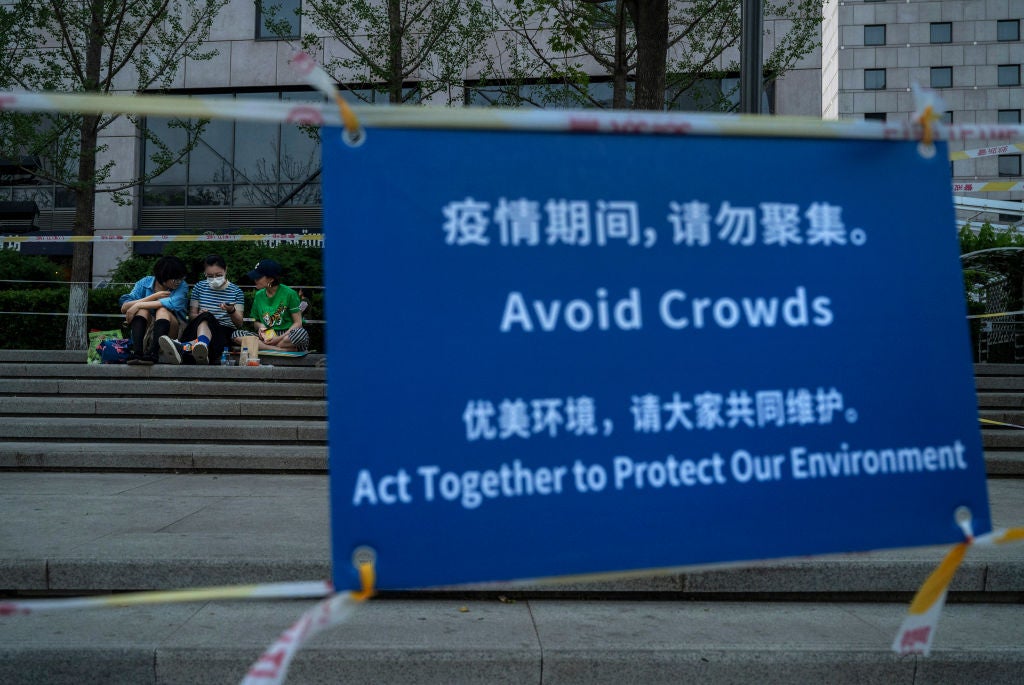
China has long been considered an unmissable investment opportunity for multinational companies. It remains, after all, the largest consumer market in the world by numbers, home to a population that has more and more money to throw at foreign brands.
For a long time, doing business in China has not just been a no-brainer, it has been essential for multinationals if they want to remain competitive. Now, amid the backdrop of the country’s zero-Covid policy, reshoring and a world where geopolitics plays an increasingly important role in investment decisions (courtesy of Donald Trump, Xi Jinping and Vladimir Putin), China is no longer the crisis-proof, stable investment landscape it once was.
An average vaccine is costing China dearly
As things stand, the zero-Covid policy is the biggest problem for investors in China. Beijing is pursuing it with draconian zeal, in short, due to the inefficacy of Chinese vaccines.
The Pfizer-BioNTech vaccine, widely used in the West, delivers 95% effectiveness in protecting against symptomatic Covid-19 infection. However, of the two main vaccines used in China, Sinovac has just 51% effectiveness, and Sinopharm had a 78.1% efficacy rate in Phase III clinical trials.
In light of China’s continued refusal to approve the US-made Pfizer or Moderna vaccines, most Western experts agree that the country’s best bet would be to move on from zero-Covid and its related disruptions by developing a vaccine that actually nullifies the Omicron variant – a product that would also serve as a much more successful international export.
On top of the inefficiency of its current vaccine, uptake among the country’s elderly population remains low as older generations of Chinese continue to favour traditional and herbal medicines. According to the National Bureau of Statistics of China, less than 20% of people aged 80 and over in the country have had three doses, while 52 million over 60s have not received two jabs.
Operating a business is getting harder in China
Naturally, the zero-Covid lockdowns across China have, and are, causing a crisis of confidence among international investors, thereby altering the decision-making calculus of C-suite executives whose companies are exposed to the Chinese market.
A survey of 374 multinational companies operating in the country by the European Chamber of Commerce in China exemplified this. Due to the Communist Party’s zero-Covid policy, 23% of its respondents said they are planning to shift “current or planned investments to other markets”. Notably, a small but significant 11% of respondents said that they will downsize their China operations, with 36% not planning to change and 46% stating it is too early to say.
It is hardly breaking news, but running a business in a Covid-ridden (and zero-Covid) environment is not cheap, for both businesses and the government. Remarkably, Japanese bank Nomura estimates that testing 70% of the population every other day would amount to 1.8% of China’s GDP, or 8.4% of total fiscal expenditure.
What’s more, China’s bond markets have suffered three consecutive months of outflows, equating to $45bn, and about $4.9bn has left China in terms of equity in stocks since March 2022. Essentially, continuing with a zero-Covid policy means that foreign direct investment into China will slow and the state coffers will be severely stretched.
Ukraine is worsening risk perceptions too
Zero-Covid doesn’t tell the whole story, however. Since the end of the Cold War, geopolitics has played a less significant role in investment decisions regarding China, generally speaking. While it always remained important, it rarely took centre stage. Russia’s invasion of Ukraine has changed that.
The reality is that Taiwan and Ukraine are different but certainly not incomparable, and decision makers in the upper echelons of the Communist Party have never hidden their goals and intentions with regards to Taiwan.
A Chinese invasion of Taiwan is unlikely to come soon since Russia’s experiences in Ukraine show the high costs of such aggression, with more than 1,000 companies withdrawing from Russia (to varying degrees), not to mention the stranglehold of sanctions. This has not stopped companies pondering whether they will have to disentangle from China one day.
Reflecting this shift in risk assessment is the fact that Russia’s invasion of Ukraine has now added geopolitics to the list of priorities for businesses, according to the recent 2022 Edelman Trust Barometer Special Report: The Geopolitical Business – conducted in 14 countries with 14,000 respondents. Just under six in ten respondents now say geopolitics is a business priority for them.
The war has created new expectations of business action in the geopolitical realm. In fact, nearly all of Edelman’s consumer respondents said that they expect corporations to act in response to an unprovoked invasion in countries where they do business, be it by applying political and economic pressure or publicly speaking out against the aggressor.
Meanwhile, nearly half of those responding to Edelman’s survey said they have bought or boycotted brands or companies based on their response to the invasion of Ukraine. Another key finding is that employees are significantly more loyal to an employer (79% versus 55%) and willing to recommend that employer (80% versus 54%) if the Ukraine response has met their expectations. In short, it pays for companies to leave Russia.
Bear in mind that the war on Ukraine comes on top of five years of Western trade wars with China, and then Covid-19, two seismic shifts that accelerated the ongoing move towards shorter and more regionalised supply chains in the form of nearshoring or ‘friendshoring’. Then there is China’s ongoing ethnic cleansing of its Muslim Ugyhur population in recent years, an atrocity whose geopolitical and business risk is heightened by the new corporate standards being set in response to Russia. It is now unavoidably true that the world is entering a new era in the relationship between democracies and non-democracies. Business as usual cannot go on, and this presents very serious conundrums for Western commerce with China.



